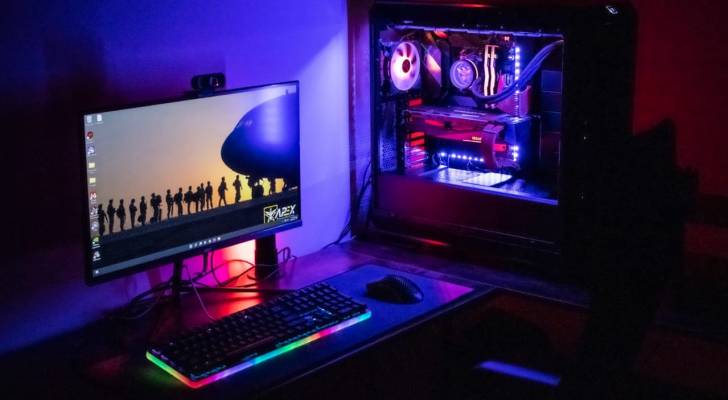Gaming PC.
What specs should you look for in a gaming PC?
When it comes to gaming, having the right hardware can make all the difference. Whether you're a casual gamer or a hardcore enthusiast, understanding the key components of the best PC gaming computers is essential to building or buying a system that delivers top-notch performance.
If you're planning to visit a computer store or shop online, knowing what to look for will help you make an informed decision. So, what specs should a gaming PC have? Let’s break it down.
The Core Components of a Gaming PC
A gaming PC is more than just a standard computer; it’s a powerhouse designed to handle the demands of modern video games. Here are the eight essential components you need to consider when building or buying a gaming PC:
1. Motherboard
The motherboard is the backbone of your PC, connecting all the components and allowing them to communicate. For gaming, it’s crucial to choose a high-quality motherboard that supports the latest hardware and offers room for future upgrades. Look for features like multiple PCIe slots, robust power delivery, and support for overclocking if you plan to push your system’s performance.
2. Processor (CPU)
The CPU is the brain of your gaming PC, and in 2024, more cores and threads are better. For optimal performance, aim for at least a 6-core processor like the Intel Core i5 14400F or AMD Ryzen 7600X. High-end builds can benefit from CPUs like the Intel Core i5 14600K or AMD Ryzen 7 7800X3D, which eliminate bottlenecks and deliver smooth gameplay.
3. RAM (Memory)
Gone are the days when 8GB of RAM was enough for gaming. Modern games and applications require more memory, so 16GB of DDR4 or DDR5 RAM is the sweet spot. Pay attention to RAM speed and timings, as these can impact performance. For DDR4, aim for at least 3200MHz, while DDR5 should be 6000MHz or higher.
4. Graphics Card (GPU)
The GPU is arguably the most critical component for gaming. It handles the rendering of graphics and ensures smooth gameplay. For 1080p gaming, a GPU with at least 6GB of VRAM, like the AMD Radeon RX 7600 or NVIDIA RTX 4060, is sufficient. For 1440p or 4K gaming, consider high-end options like the RX 7800 XT or RTX 4090.
5. Storage
Solid State Drives (SSDs) have become the standard for gaming PCs due to their speed and reliability. Opt for at least 1TB of NVMe SSD storage for your operating system and games. If your motherboard supports multiple M.2 slots, adding more SSDs is a great way to expand storage without sacrificing speed.
6. Power Supply (PSU)
A reliable power supply is vital for a stable gaming experience. Choose a PSU with an 80-plus rating and enough wattage to support your components, especially if you plan to upgrade in the future. For most builds, a 1000W PSU is a safe bet.
7. CPU Cooler
Keeping your CPU cool is essential for maintaining performance. While stock coolers work for locked processors, overclockable CPUs require better cooling solutions. Air coolers are cost-effective, but for high-end builds, consider an AIO liquid cooler for superior heat
Dissipation.
8. Case
A good PC case ensures proper airflow and compatibility with your components. Look for a case with ample space for your GPU, storage drives, and cooling solutions. Aesthetics are secondary to functionality, so prioritize airflow and cable management.
Upgradeability and Future-Proofing
One of the biggest advantages of building a gaming PC is the ability to upgrade over time. To future-proof your system, choose a motherboard with support for the latest CPUs and GPUs, invest in a high-wattage PSU, and opt for a case with plenty of room for expansion. Avoid older-generation components, as they may limit your ability to upgrade in the future.
Final Thoughts
Building or buying a gaming PC is an exciting journey, but it requires careful planning and research. By focusing on the right specs—like a powerful CPU, ample RAM, a high-performance GPU, and fast storage—you can create a system that delivers exceptional gaming experiences. Whether you’re shopping at a computer store or assembling your own rig, keep compatibility and future-proofing in mind to ensure your PC remains relevant for years to come. Happy gaming!




